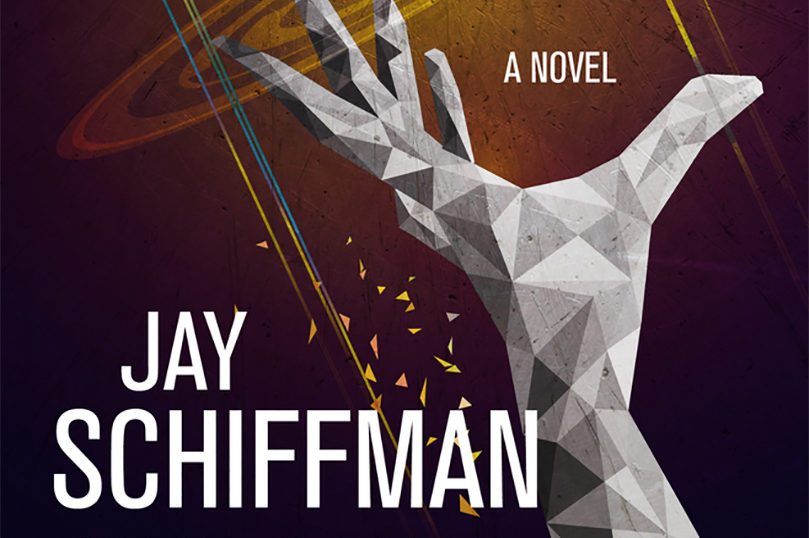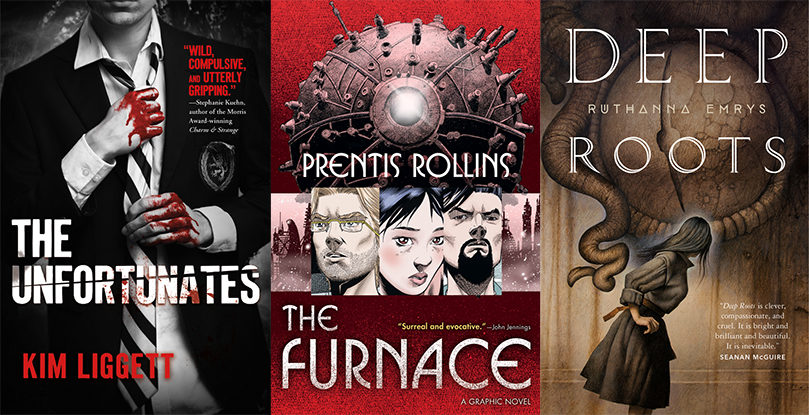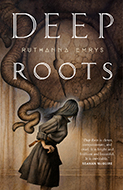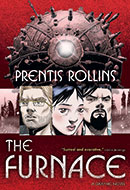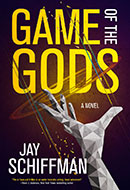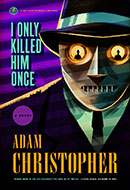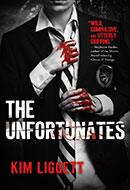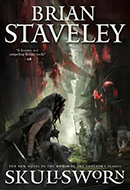Written by opens in a new windowJay Schiffman
opens in a new window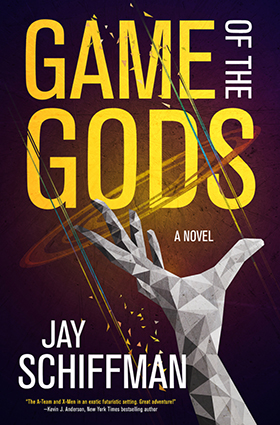 Many lives ago, I taught political science classes at a university. I began each class by talking about different definitions of politics. There are many, and ultimately the definitions themselves become “political” as in partial to a certain perspective. But I think it’s fair to say that there are two essential elements to politics—power relationships and the rules that govern them.
Many lives ago, I taught political science classes at a university. I began each class by talking about different definitions of politics. There are many, and ultimately the definitions themselves become “political” as in partial to a certain perspective. But I think it’s fair to say that there are two essential elements to politics—power relationships and the rules that govern them.
In writing my novel Game of the Gods, I wanted to focus on the different forms political systems take. I wasn’t necessarily focused on world-building in the traditional science fiction sense. Instead, I was concerned about my characters’ relationships with other powerful characters and the social and political norms that maintain these relationships. Many of us tend to view our political rules as being something extra-human, as if the gods handed us our political systems. Even the Declaration of Independence and Bill of Rights are grounded in theories of natural rights and God. But the truth is that political systems—and the rules that govern this “game”—are an entirely human invention hand-crafted by those in power. They’re malleable. They’re fungible. In America, we often perceive of political rules as being stickier and more robust than they are. But they’re not.
My novel explores these different political themes, including the malleability of political and social rules. But my novel is first and foremost a sci-fi action-adventure. It’s a plot-driven piece of speculative fiction focused on the personal relationships between characters that are political. These characters’ actions and decisions steer the larger political themes.
The main character in the novel, Max Cone, is an accomplished military leader and judge in a futuristic nation that is losing its power. His family is taken and his friends are killed. He assembles an unconventional band of outcasts to help him fight for his loved ones and the world. These outcasts are from different social, religious, and political backgrounds and this leads to interpersonal conflicts that drive the narrative. In addition to the intragroup dynamics, Max and his band travel through different political landscapes fighting power-obsessed leaders who want to rule the world.
The action in my novel unfolds across six main nations/political groups. I tried to create a diverse set of political environments that my characters come from, and in many cases, need to overcome.
- The Federacy, Max’s nation, handpicks its citizens. Judges like Max interview citizen-candidates from the ages of 13 to 18 and select only the “best” candidates. To be granted citizenship, candidates must demonstrate their character as a Federate. Truth, morality, patriotism, and a willingness to fight for the Federacy are values judges look for in candidates. The Federacy is a closed society with deeply held moral beliefs around Our God, the one true God.
- The National Freedom Force (NFF), the Federacy’s chief rival, is brutal in war and terrorizes any population it defeats. It has an authoritarian militaristic culture, but its citizens have great freedoms and personal autonomy. There is free speech, a free press, expansive sexual freedoms, and well-protected economic rights. The system is a Hobbesian one—a strong centralized government, but one that allows ample freedom to its citizens to pursue their self-interests.
- The Rogues are a splinter group from the NFF. They too are fighting the Federacy. The Rogues rebelled against the corruption and self-interest of the NFF. They are a communal culture that has purposefully built fledgling rituals and ceremonies around bonding and creating lasting relationships within the group. “Oneness” is a central tenet of this tight-knit military community. It’s founder and leader, Emile Phode, prides himself on honesty, integrity, and commitment to his fighters. His moral values and his leadership style are the antithesis of the NFF’s Chancellor.
- The Nation of Yerusalom is a cult-of-personality theocracy led by the Holy Father. The Holy Father is consumed with the nature of divinity and the relationship between God and humanity. Few if any rules curtail the Holy Father’s power and he expects his followers to believe in his own infallibility.
- Kolexico is a bastion for libertarian values. It is a nation, but refuses to define itself as such. It is guided by a document called “The Ten Rules.” These rules allow for maximum liberty and a highly limited centralized government. Citizens of Kolexico vote with their feet, freely moving from one decentralized local governmental entity, a Cartel, to another. The Ten Rules closely guards individual rights and liberties and provides for a unique voting system that ensures that no Cartel will get too powerful.
- The Abstainers are an informal political movement on the outskirts of the Federacy that abstains from all forms of politics. The movement is deeply skeptical of foundational rules and political systems. There is a spiritual undercurrent to the movement that is best described as humanistic.
Max and his band of outcasts must navigate these different political systems while trying to save family, friends, and the world. As they do, they are forced to reconcile their political pasts with the present and future. Rules that once limited who should be friends and who should be enemies are turned upside down. Max and the other characters must come to terms with the moral limits of their prior religious, social, and political affiliations. This tension between past and present, fidelity and loss of faith, truth and dishonesty lies at the heart of Game of the Gods.
Order Your Copy
opens in a new window opens in a new window
opens in a new window opens in a new window
opens in a new window opens in a new window
opens in a new window opens in a new window
opens in a new window
Follow Jay Schiffman online on opens in a new windowTwitter, opens in a new windowFacebook, and opens in a new windowhis website.

